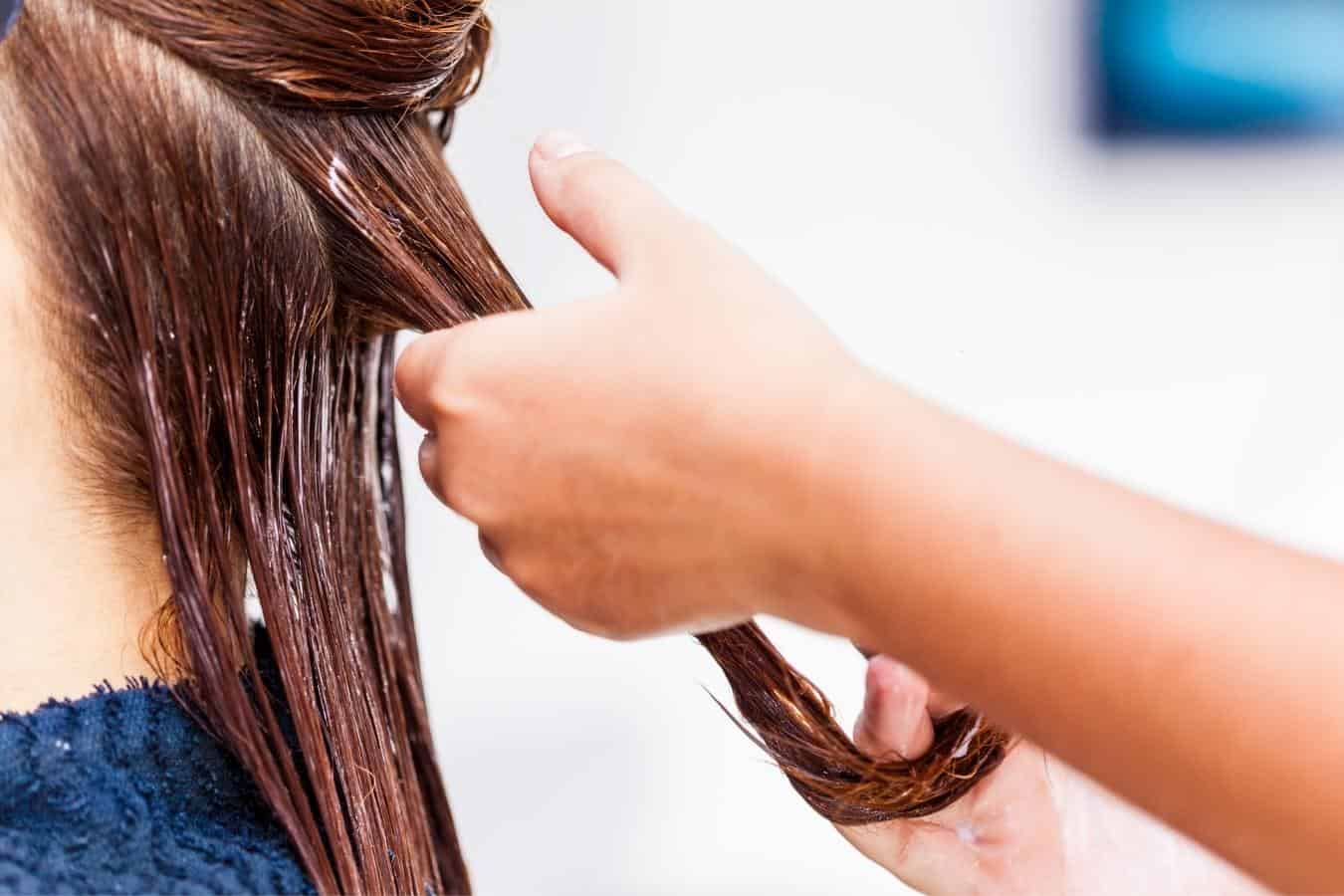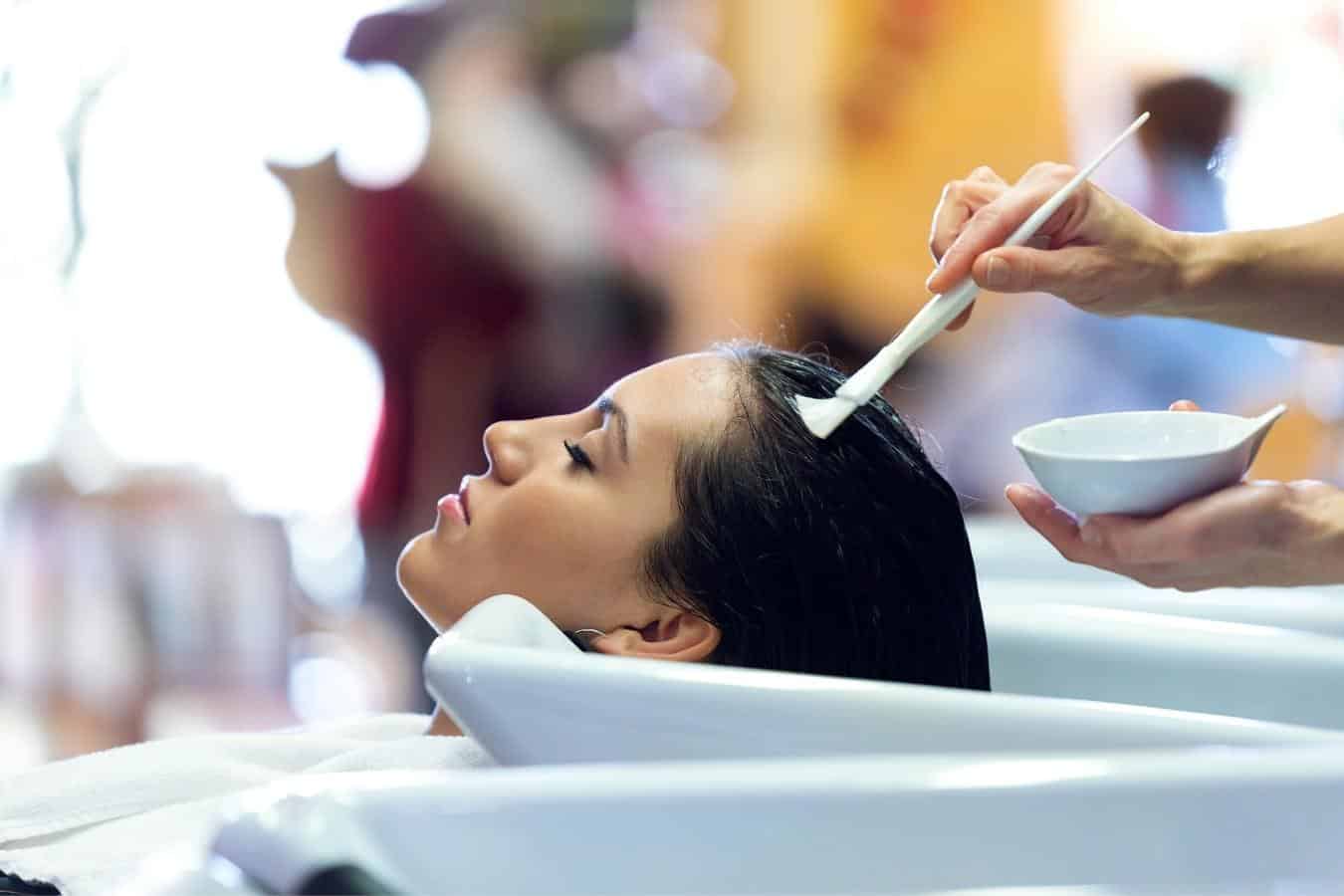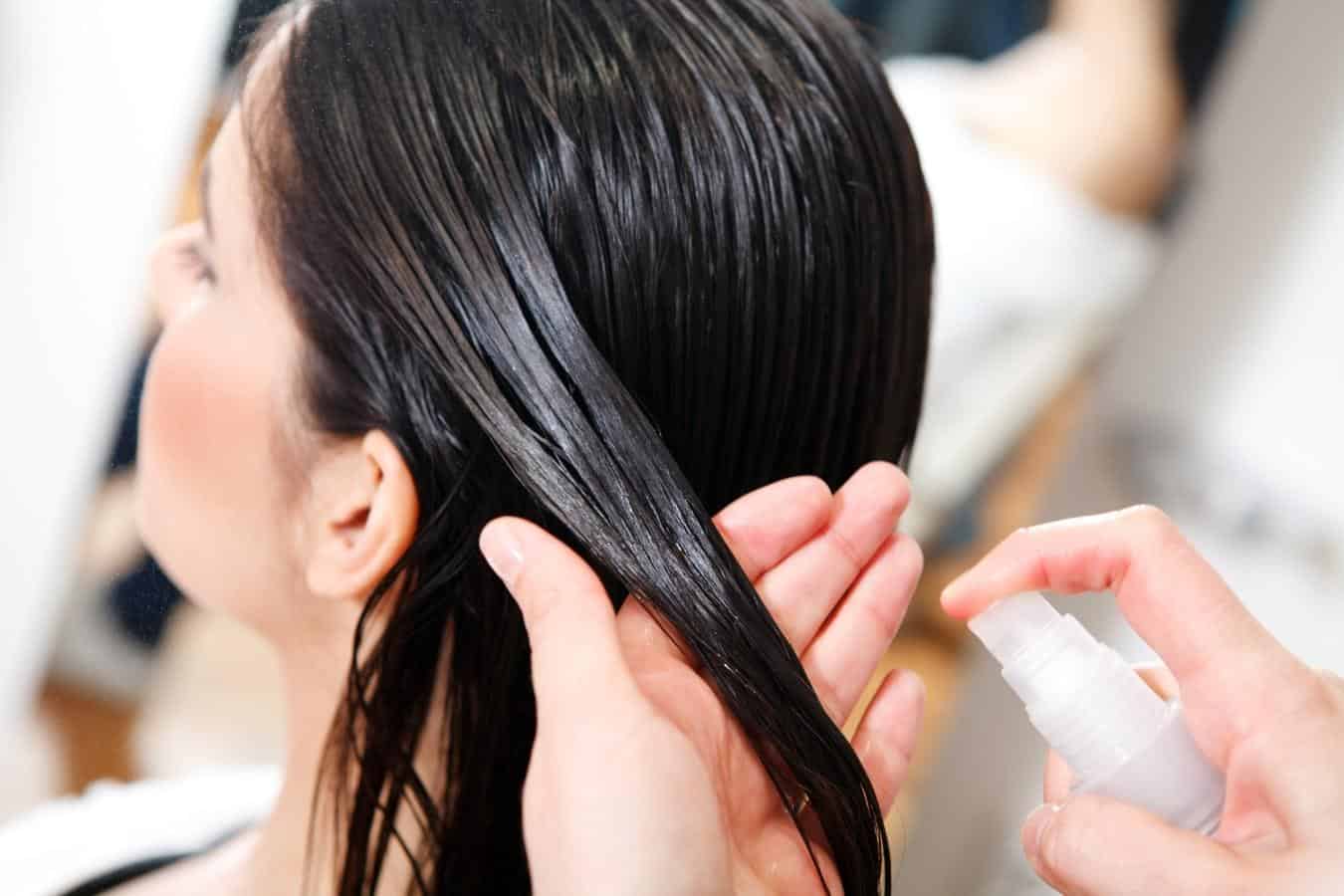Hair care fads come and go faster than you have a chance to notice, but what – if anything – have you heard about hydrolyzed oat protein for hair care? And how do you use it?

Using a water-soluble form of oat protein is thought to have specific benefits in moisturizing and softening hair and scalp skin. It fills in damaged gaps in hair cuticles, protects hairs against dryness with a coating, and has anti-itch properties.
Below, we’ll explore in more depth what hydrolyzed oat protein is and where it exists in hair care products. We’ll explain how to use it for hair care, the benefits, the associated risks, and more.
This post contains affiliate links and we may earn if you click on them (at no extra cost to you). Please read our full disclosure policy here.
What Is Hydrolyzed Oat Protein?
To understand how hydrolyzed oats are useful in hair care, we first need to unpack what they are.
Hydrolyzed oat protein comes from oat seeds, rather than the plant itself.
As the “hydrolyzed” in its name suggests, this substance is in a liquid format. That’s how it’s able to get added to liquid hair products like creams, gels, and serums.
It’s slightly acidic (around pH 5.0) – something to keep in mind if you have skin (scalp) that is sensitive to acidic substances.
But the primary quality of hydrolyzed oat protein is the fact that it’s water-soluble.
Some hydrolyzed oat proteins used in hair care products also contain preservatives in order to keep them from rotting.
How Is It Produced?
Any form of hydrolyzed protein is standardly produced by making a water solution of the protein to result in its component peptides and amino acids.
With hydrolyzed oats, this process is carried out on the oat (Aveena sativa) kernels.
This is often done by heating it for a long time with hydrochloric acid (HCl), though you can also cold-process it.
Why Is Hydrolyzed Oat Protein Good For Hair?

One of the reasons that oat products are healthy for hair is that oats are naturally gentle on our bodies.
Unless you have a severe gluten allergy, oat protein should be pretty soothing to your scalp when applied.
According to WebMD, oats have anti-inflammatory properties, which may even relieve an itchy or uncomfortable scalp from harsh hair care products.
Products with oats are also able to leave behind a protective layer on your hair, thus trapping in moisture. It acts as a barrier that keeps your hair from drying out as easily or quickly.
We know that protein is beneficial to hair care because hair contains fibrous proteins known as keratin.
These keratin proteins can become damaged over time, and one way to effectively repair them and restore hair health is to supplement protein from oats.
This helps to improve individual hair structure, resulting in healthier, longer hairs.
And compared to other proteins derived from cereal grains, oat protein has a higher and higher-quality content of proteins (15-20% protein content).
So using oat protein gives you a leg up on products with other protein derivatives.
How To Use Hydrolyzed Oat Protein
There are a few effective ways to use hydrolyzed oat protein on your hair, including the following:
- Apply store-bought hair care products containing hydrolyzed oat protein
- Make your own hydrolyzed oat hair products with a hydrolyzed oat protein ingredient
- Use hydrolyzed oat flour on your hair
Store-Bought Hydrolyzed Oat Products
The easiest way to reap the benefits of hydrolyzed oat protein on your hair is to buy cosmetics with hydrolyzed oats as the main ingredient.
Products like Design Essentials Oat Protein and Henna Shampoo and Kelly Logan Hair Oat Protein and Honey Conditioner are specially designed to supplement oat proteins to repair keratin in your hair and boost moisture.
Buy Design Essentials Oat Protein and Henna Shampoo from Amazon here.
Buy Kelly Logan Hair Oat Protein and Honey Conditioner from Kelly Logan here.
DIY Hydrolyzed Oat Protein Products
While there aren’t as many oat protein hair care products sold in stores and online, there are still ways to make your own.
You can buy quality hydrolyzed oat protein from DIY websites and add it to DIY recipes for hair masks and treatments.
Many people add ingredients like honey, egg, or coconut milk to their hydrolyzed oats for hair treatment.
Hydrolyzed Oat Flour
Another way to use hydrolyzed oats on your hair is to acquire hydrolyzed oat flour.
This works similarly to hydrolyzed oat protein, as it contains plenty of protein to repair hair keratin.
You can add it to DIY hair treatment recipes, just as you would add the liquid form of oat protein.
Benefits Of Hydrolyzed Oat Protein

We already mentioned the ways that hydrolyzed oat protein works on your hair, by creating protective barriers, moisturizing, and repairing keratin.
But you may still be wondering what are the benefits of this ingredient in hair products:
Scalp Health
One of the benefits of this protein is that it has an emollient effect on your scalp – meaning it softens and soothes the skin where your hair grows.
This may not seem directly related to hair care, but it is because a healthy scalp promotes healthy hair.
For instance, the scalp is a microbiome that can experience dandruff and scaliness when it’s unhealthy.
These conditions are linked to poor hair health such as dryness, dullness, roughness, and even early hair loss.
Hair Health and Repair
The other ways that oat protein benefits hair include:
- Reducing hair breakage
- Boosting hair moisture levels
- Making hair appear shinier
- Protecting hair from external damage like heat and chemicals
- Thickening your hair
- Softening your hair
- Smoothening your hair (relaxing it)
Risks Of Using Hydrolyzed Oat Protein On Hair
Although hydrolyzed oat protein is a vegan and relatively natural/healthy product to use on your hair, be aware of its possible risks, such as:
- Cross-contamination of gluten in oat protein may lead to unintentional ingestion of gluten in celiac individuals or gluten-intolerant individuals
- Some oat protein products are slightly acidic, which is disadvantageous for some people with sensitive hair
Is hydrolyzed oat protein good for skin too?
Yes, hydrolyzed oat protein is good for skin health, as well as hair health, because the skin is also composed of keratin. The oat protein helps to repair damaged keratin in your skin cells.
Oat protein also has the ability to soothe and soften inflamed or itchy skin, and it increases filaggrin production to strengthen your skin barrier.
Does hydrolyzed oat protein contain gluten?
Hydrolyzed oat protein does not typically contain gluten (wheat), which is why it’s generally considered safe for celiac individuals.
However, it can undergo cross-contamination with gluten in the production process.
Further, some celiac individuals are also subject to oat intolerance, which may affect certain people when using hydrolyzed oat protein.
Is hydrolyzed oat protein a natural ingredient?
Yes, hydrolyzed oat protein is about as natural as hair care ingredients get.
It’s simply oat kernels whose molecules have been split with water molecules.
Unless they’re treated with unhealthy preservatives or additives, they are fairly natural for those on vegan diets.
Is hydrolyzed oat protein cruelty-free?
Yes, most hydrolyzed oat protein products are certified cruelty-free (but you should always check the label).
They don’t contain any animal products or byproducts, making them vegan by nature.
Look for hydrolyzed oat protein from sustainable brands to ensure that you’re using products that treat humans, animals, and the environment fairly.
Disclaimer: This site is not intended to provide professional or medical advice. All of the content on LovedByCurls.com is for informational purposes only. All advice should be followed at your own discretion. Ingredients may change at any time so always check the product label before using. Check our full disclaimer policy here.
